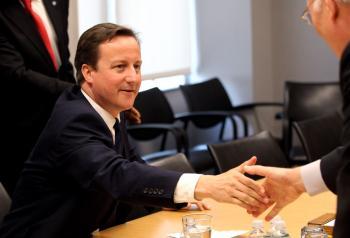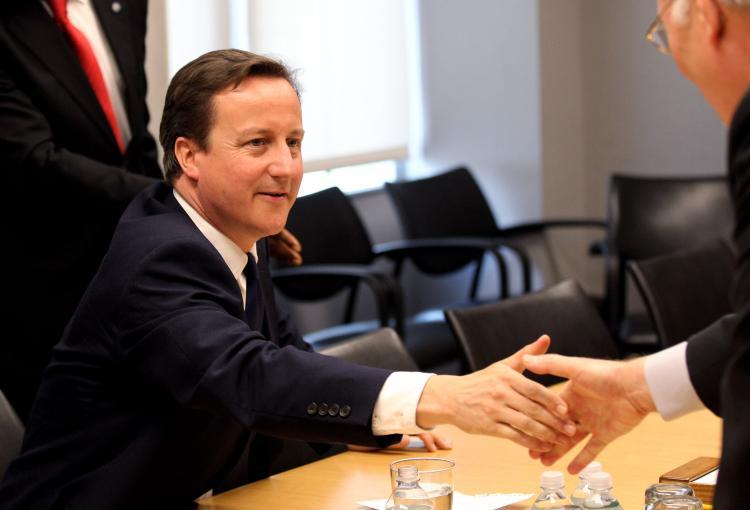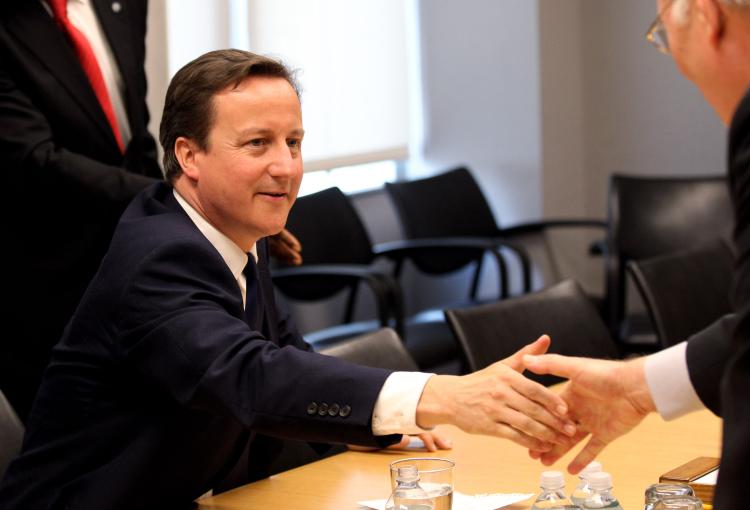LONDON—British citizens will take the role of state officials in an experimental run of the Conservative Party manifesto promise of dissolving big government bureaucracies in favor of the “Big Society.”
Prime Minister David Cameron named four parts of England where money will be provided for social enterprise groups, voluntary organizations, and charities to run local amenities such as bus routes and broadband Internet provision. This would be the “vanguard” of his big society project.
In a speech in Liverpool on July 19, Cameron said that Liverpool, Eden Valley in Cumbria, Windsor and Maidenhead, and the London borough of Sutton would be part of “the biggest, most dramatic redistribution of power from elites in [government] to the man and woman on the street.”
While he sees reducing the country’s financial deficit as his “duty,” he said that empowering people to shape their own destinies was something that has driven his philosophy since 2005—before the financial crisis hit.
He said he wanted his government to be seen as pushing forward a new spirit of community activism as much as for overhauling the deficit.
All four places had asked to be involved in local projects including a buyout of a rural pub, support to speed up broadband supply, developing renewable energy, giving residents more power over council spending decisions on parks and other amenities, and increasing powers to parish councils.
Cameron denied that this was a coverup for the local council cuts coming next year. He said he wanted to expand the “great work” that volunteers were doing already.
Volunteering, philanthropy, and some $607 million stuck in dormant bank and building society accounts are intended to fund this radical big society initiative. Eventually, start-up funds will be available through a big society bank that will be matched by private investment.
The PM says he wants the big society “to help people feel free and powerful enough to help themselves and their own communities.”
He said the funds would help people stop being “passive recipients of state help” and would help turn neighborhoods into “communities with oomph.”
There is some concern that not all voluntary groups will have people of such caliber and will need local or national government officials to guide and support them.
Ed Miliband, who is contending for the Labor Party leadership, is critical of the big society plan. On the BBC radio “World At One” program he said the government was reneging on its responsibilities.
Miliband said it is untrue that a big government bureaucracy was strangling local volunteer society and that there were more people volunteering now than in the past.
Prime Minister David Cameron named four parts of England where money will be provided for social enterprise groups, voluntary organizations, and charities to run local amenities such as bus routes and broadband Internet provision. This would be the “vanguard” of his big society project.
In a speech in Liverpool on July 19, Cameron said that Liverpool, Eden Valley in Cumbria, Windsor and Maidenhead, and the London borough of Sutton would be part of “the biggest, most dramatic redistribution of power from elites in [government] to the man and woman on the street.”
While he sees reducing the country’s financial deficit as his “duty,” he said that empowering people to shape their own destinies was something that has driven his philosophy since 2005—before the financial crisis hit.
He said he wanted his government to be seen as pushing forward a new spirit of community activism as much as for overhauling the deficit.
All four places had asked to be involved in local projects including a buyout of a rural pub, support to speed up broadband supply, developing renewable energy, giving residents more power over council spending decisions on parks and other amenities, and increasing powers to parish councils.
Cameron denied that this was a coverup for the local council cuts coming next year. He said he wanted to expand the “great work” that volunteers were doing already.
Volunteering, philanthropy, and some $607 million stuck in dormant bank and building society accounts are intended to fund this radical big society initiative. Eventually, start-up funds will be available through a big society bank that will be matched by private investment.
The PM says he wants the big society “to help people feel free and powerful enough to help themselves and their own communities.”
He said the funds would help people stop being “passive recipients of state help” and would help turn neighborhoods into “communities with oomph.”
There is some concern that not all voluntary groups will have people of such caliber and will need local or national government officials to guide and support them.
Ed Miliband, who is contending for the Labor Party leadership, is critical of the big society plan. On the BBC radio “World At One” program he said the government was reneging on its responsibilities.
Miliband said it is untrue that a big government bureaucracy was strangling local volunteer society and that there were more people volunteering now than in the past.






